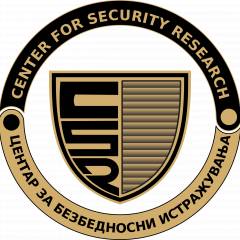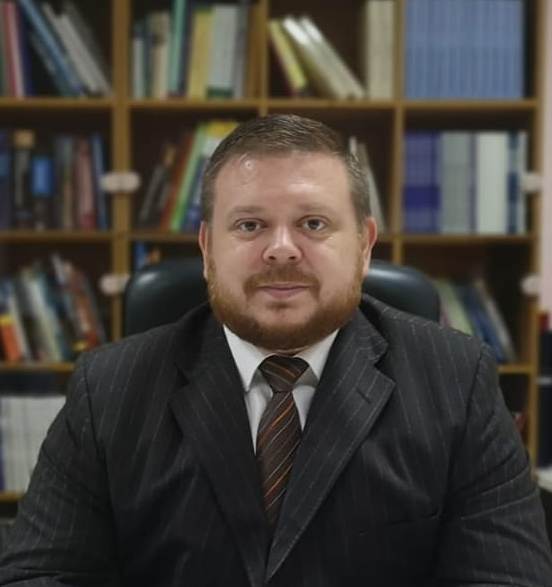
From December until today, we are facing a disease that took the world by surprise. The pandemic caused an economic and social crisis that diverted the attention of the authorities from crime. Police and the military are being used to implement quarantine, many businesses have collapsed and many jobs have been lost. Hospitals have been, and still are, overflooded with patients for whom there is no cure, and those suffering from other diseases have remained almost neglected. This set of circumstances is ideal for the rise of criminal activity around the world.
In the overall situation we are in, we wonder where are the additional activities of the police during the pandemic? Until now, they have included enforcing curfews, as well as conducting state quarantine,compliance with the orders for self-isolation, supporting the staff from public health facilities in establishing contacts with an infected person, specific tasks and responsibilities of border police officers, and so on. It is more than clear that these additional activities carry an additional, but also a very large burden on the already stretched resources.
Throughout this race at a time when any information related to the coronavirus is worth its weight in gold, the police, in addition to this new and enormously demanding role, must continue to perform their primary role. It maintains order and peace despite the constant fight against crime and corruption, and now the function has been extended to the implementation of state measures.
The implementation of quarantine has weakened the economy in many countries. The income of the population is halved or completely cut off and they are forced to turn to alternative sources. At the same time, the authorities have not implemented the appropriate measures in a timely manner and do not have sufficient resources to provide adequate economic assistance. In many cases, criminal groups exploit this situation.
But criminal groups that influence the population and the Government have taken advantage of the situation to play a major role in tackling the crisis. Groups that did not have a significant impact before the crisis are gaining ground due to the economic and social consequences of the pandemic.
In Italy, members of the Cosa Nostra distributed food to the population of Palermo, and Camorra families in Naples provided basic necessities to the people through fake charities.
The Sinaloa, Jalisco, Los Durango, and Los Viagra cartels brought food and disinfectants to the territories under their influence. Los Viagra even promoted their work by posting videos of armed individuals distributing groceries, while other cartels placed their logos on the packages they delivered.
Yakuza in Japan has done the same as other organizations around the world in order to increase its reputation. Yamaguchi-Gumi associates distributed toilet paper and masks to kindergartens and pharmacies. The Yakuza also offered to disinfect the Diamond Princess cruise ship, which had 705 positive COVID-19 cases.
Organizations in Africa have set aside their rivalries to help the people of Cape Town.
In addition to increasing its reputation and strengthening its influence, the number of members of criminal groups began to grow. The rising number of unemployed and the closing of schools have led to a large number of people looking for new jobs. Due to the weakened economy, the population is forced to seek employment outside the legal framework. Children no longer go to school, libraries, youth centers are closed and thus increase the chances of their recruitment.
Some criminal groups, such as those in Brazil, have used their power to control product prices. Thus, the prices of disinfectants and masks were significantly increased. They even imposed a curfew, and so did Taliban groups on passengers from Iran.
Shifting police attention to other tasks has also led to increased cannabis production. Thanks to travel bans, the price of marijuana has risen. We can see this in Serbia, where a large amount of marijuana was found in a boiler factory, but also in Macedonia where about 48 kilograms of drugs were seized. Since the onset of the corona crisis, the number of such cases in the Balkans is much higher than usual.
Taking advantage of the difficult economic situation, the criminal groups expanded their activities in the direction of ransom, for small sums, to the bankrupt small and medium enterprises, namely coffee bars and nightclubs, which they then use for money laundering. They manage in this situation, in a way that they offer such companies, which are in a difficult financial situation, loans with high interest rates or take over the entire companies.
The online event, organized by the Center for Security Research, which dealt with the impact of the coronavirus to increase cyber attacks, highlighted the most common tactics for cyber attacks.
In this context, but also according to the reports of the European Police Office at Europol, as a result of the pandemic caused by the coronavirus, criminal activities have significantly increased, which use this crisis for personal gain, whereby criminals quickly adapt to new conditions and find new ways of earning money, and the Internet is emphasized as a frequent place for committing crimes, because it has become the main weapon for life, ie for doing work activities from home, but also for shopping in countries where movement is restricted by force.
In addition to various manipulation methods, such as attempts to collect confidential data and information on individuals and legal entities for financial gain, the Corona crisis has opened the door for pedophiles, taking advantage of the fact that due to special conditions children are increasingly at home and feel lonely. They spend most of their time at home learning online, and the social networks they use to communicate with their friends make them a perfect target for cyber-pedophiles.
According to Europol reports, the number of pedophiles luring children on social media is growing, taking advantage of the growing vulnerability of children. Pedophiles use that situation to get in touch and have a confidential relationship that would persuade them to various actions, from exchanging photos to significantly deepining their “relationship”. Increasing the influence and work of organized crime groups during a crisis is not something out of the ordinary. The government can not deal with the economic crisis, the impact on the health system, meeting the needs of the population and controlling criminal activity at the same time.The priority in such a scenario is the population, the sick and the economy, and crime is partially neglected. Because of all this, the corona crisis is a set of perfect conditions for achieving the desired goals of a criminal group. For that purpose, in addition to the efforts in the fight against all these forms of crime, it is necessary to put special emphasis on preventive action, and thus raising public awareness among people about these criminal forms. This, at least to a certain extent, would increase their protection, social security, and would make a special contribution to reducing the grey economy.



